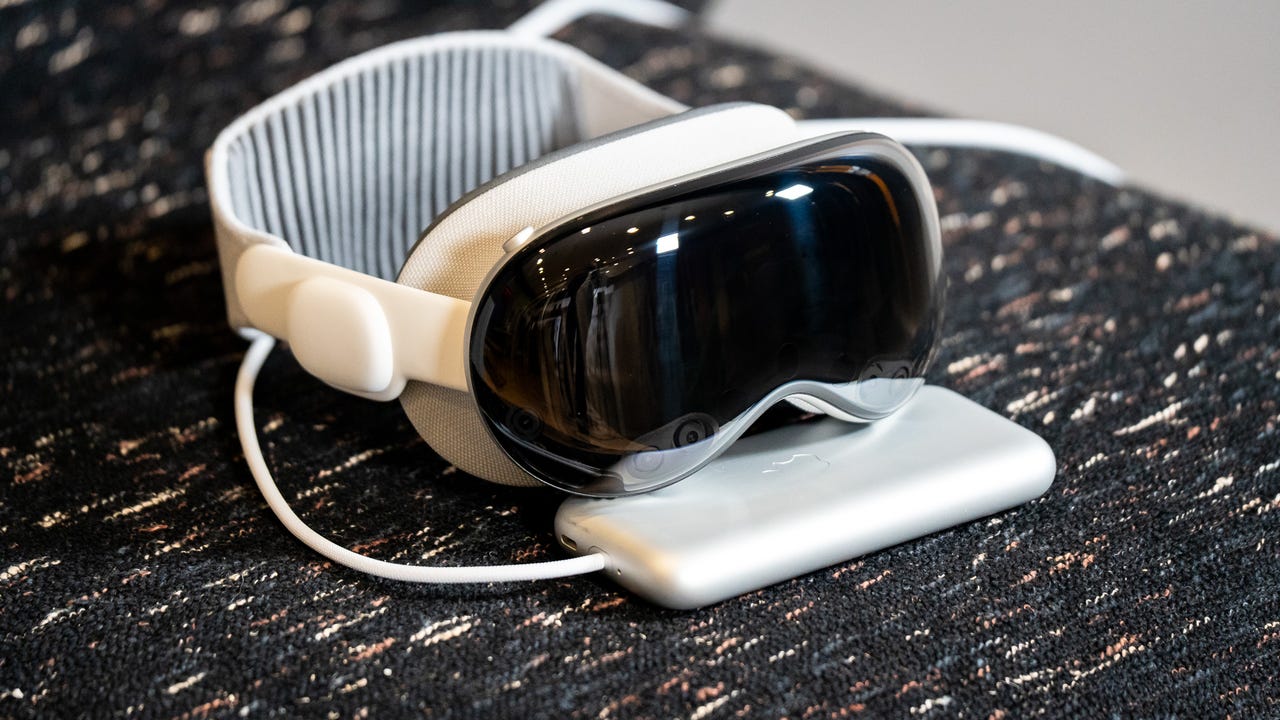
































Apple released theVision Pro to expectant buyers two weeks ago, on February 2. Now, many early AVP adopters are rushing to return the headset as we near the close of Apple's 14-day return window.
Also: I've tried Vision Pro and other top XR headsets and here's the one most people should buy
It's unclear what percentage of Vision Pro users are returning the headset, and we don't expect Apple to release that figure. The company has reportedly sold 200,000 Vision Pro units, but the reviews so far have been mixed. We searched through Reddit to find the most common complaints of AVP users and rounded them up below.
Many Vision Pro users complain of fit issues with the light seal; you see complaints about headache-inducing sessions, users feeling like they're watching a movie through binoculars, or light leaking through the nose and ruining the experience. These issues can often be enough to nudge AVP users to return the device, even though the fix is typically a simple swap of the light seal.
Apple has different sizes of light seals, and your initial scan may have landed you with the wrong size. If you're considering returning your AVP because it feels uncomfortable or you have light leaking through the edges, you may benefit from bringing your device to an Apple Store and testing out different sizes of light seals.
Also: Meta Quest 3 vs. Apple Vision Pro: How accurate was Zuckerberg's review?
The problem isn't as simple as sizing up or down; the AVP light seal is available in N and W variants, 11-14, 21-26, and 33-36, and the numbers don't follow a size pattern like clothing. Each number fits a different face type, with variations to how far your cheeks or forehead protrude forward and how deep the light seal is, so if fit is an issue, it's worth trying out a few sizes.
One might think that using your eyes and fingers to navigate a digital world would be intuitive and convenient, but that's not always the case.
Eye tracking on the AVP can be exhausting, causing eye soreness and fatigue. Eye fatigue could be an issue that improves as the wearer's body becomes accustomed to the AVP, but it is a big reasons why some users are considering returning the device.
The Vision Pro weighs between 21.2 and 22.9 ounces; that's a lot of weight to wear on your face. For reference, a 12.9-inch iPad Pro weighs 24 ounces, three iPhone 15 Pro Maxes stacked on top of each other weigh 23.4 ounces, and a bunch of five 7-inch bananas weighs 17.3 ounces.
Also: I used the Apple Vision Pro for my 8-hour work day, and it left me wanting more
Some users come up with 3D-printed modifications to distribute the weight better; others report they can't wear it for the length of a movie. If you want to return it, don't wait until you enter the last stage of Vision Pro grief or you may miss your return window.
The Apple Vision Pro is indubitably a revolutionary device. The first computers were too but they took up an entire room or even more. We're a long way from those days with today's laptops, smartphones, and wearable technology.
Also: 10 reasons the Apple Vision Pro is secretly brilliant
Thankfully for Apple, the Vision Pro doesn't have as long of a road to travel as the computer, but many AVP user complaints are that the technology is just not good enough yet to justify keeping the device.
Complaints about poor text rendering for smaller text, especially compared to the Apple ecosystem's Retina Displays, and stuttering during standard computational tasks are common -- which is problematic for a device marketed for productivity and work.
I can imagine putting on the AVP to watch a 3D movie or spatial video, being blown away by the technology, and exclaiming to my husband, "Oh, wow, are you seeing this?!" Only to be met by a confused look.
Using the Apple Vision Pro can be a beautiful experience for the wearer, but even 's own June Wan explained it can be a lonely one:
Using the Apple Vision Pro is like putting on a pair of headphones. Once it's on, you're isolated, immersed, lonely. I'd like to be an optimist about it, thinking that this will only be a short-term phenomenon, as 1) With time, virtual reality headsets will eventually be accepted as a piece of apparel, 2) In social environments, we'll learn how to physically communicate with each other, even with the face barrier, and 3) There will be more meaningful ways to connect with people in VR. Bringing FaceTime to Vision Pro is just the beginning.
We know the Vision Pro was not marketed for the Americans struggling to afford groceries; it was always meant for those early adopters willing to spend money on a big tech product like this and the developers looking to invest in the platform.
Also: Don't buy an Apple Vision Pro headset without this crucial accessory
But$3,500 is a lot of money for a VR headset (and that's before accessories), even for enthusiastic early adopters. As the hype wears off for the AVP, many who spent over$4,000 on it (after accessories, AppleCare+, and taxes) are left struggling to justify the cost.
Of course, some AVP owners bought the device intending to return it, just to get a chance to test it out and maybe flaunt a selfie or two on social media.
Also: How to watch Apple spatial videos on the Meta Quest 3? It's complicated
Apple's generous return policy enables this: The company lets you return any device within 14 days of purchase, as long as it is in its original condition and the packaging is in good shape.
 Tags quentes :
Tecnologia
Vestíveis
RA + RV
Tags quentes :
Tecnologia
Vestíveis
RA + RV